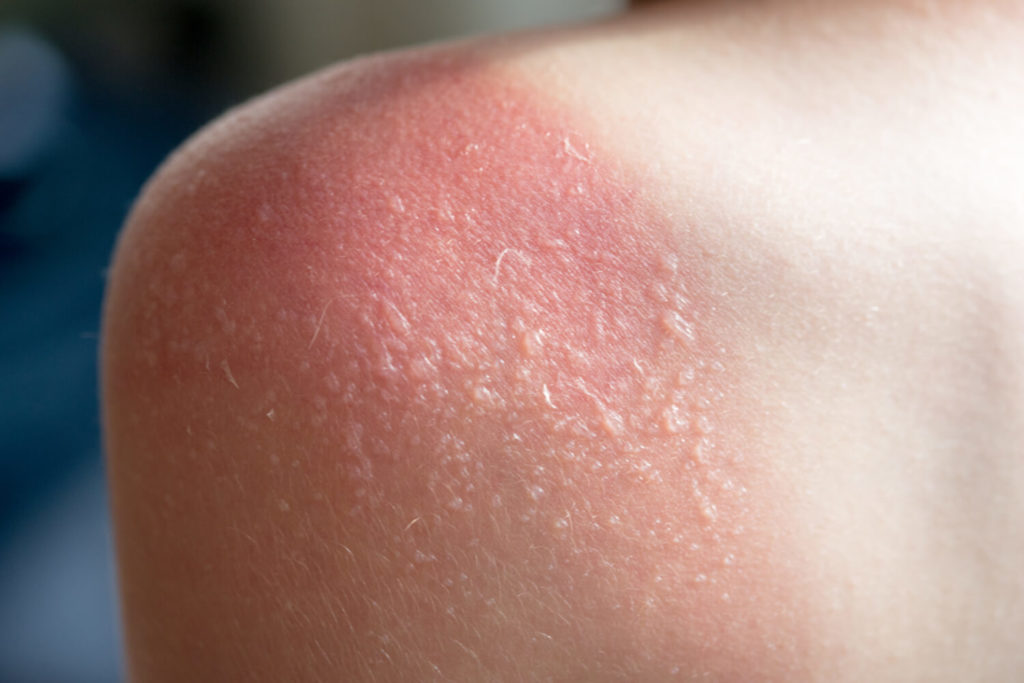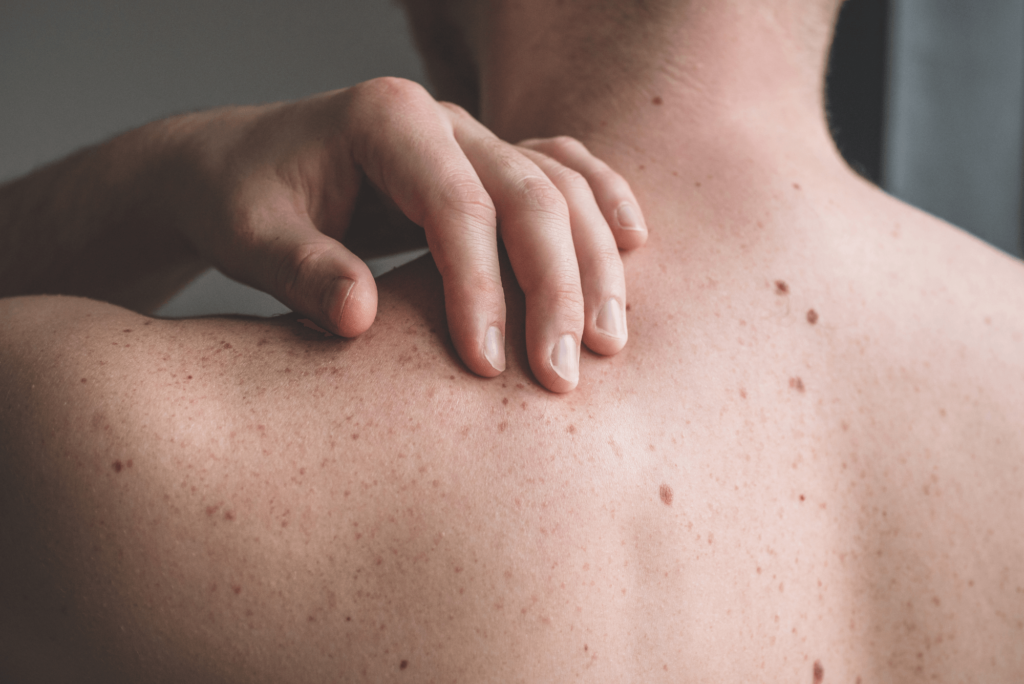September is here in Tennessee, and the cool autumn weather is on its way. And while fall weather isn’t as harsh on dermatological conditions as the summer heat or the winter cold, the change of seasons can still cause some conditions to flare up. Flare-ups can be painful and annoying, here is what to do!
Why Does My Skin Itch in Autumn?
During the fall, in almost every region of the United States besides the south, fall brings cooler temperatures, drier air, more wind, and shorter days. With the milder weather comes all kinds of outdoor activities that expose the skin to irritants, dehydration, and even potential sunburns.
Most people are also allergic to ragweed, which peaks during the fall. Reactions to ragweed include rashes, itchy eyes, and hayfever.
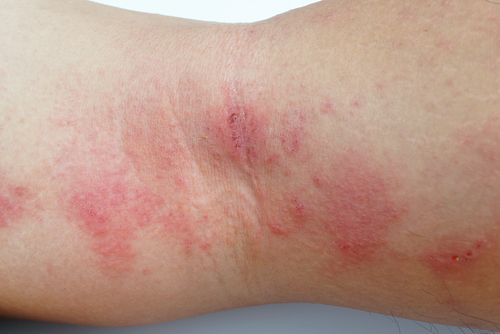
Eczema or Atopic Dermatitis
One of the most easily recognized derm conditions that flare up when the seasons change is atopic dermatitis. This chronic condition has no permanent cure, but symptoms come and go depending on what the skin is exposed to.
If your eczema flares up during the fall and your other treatments aren’t working, visit with an online dermatologist in Tennessee to get the relief you need. If you’re just now noticing eczema symptoms for the first time, don’t wait to get it taken care of. The rash won’t go away on its own, and the sooner you get it taken care of, the more you can avoid risks of secondary infection.
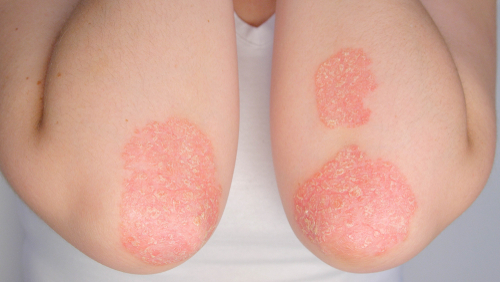
Psoriasis
Another itchy skin condition, psoriasis shows up as a red itchy rash with patches of white or silvery scales that flake off. Patches of psoriasis are most common on the arms, legs, and scalp.
Occasionally, symptoms may go away on their own if you encountered an irritant that you were only exposed to once. Sometimes, your body might even get used to the irritant and stop producing an inflammatory response.
Thankfully, this condition is easily treatable with medications to help relieve the itchiness and appearance of scales.
At Tennessee Telederm, we can identify and evaluate your psoriasis to help you find the right medication. Typically, we’ll start by recommending a topical treatment before prescribing a systemic medication.
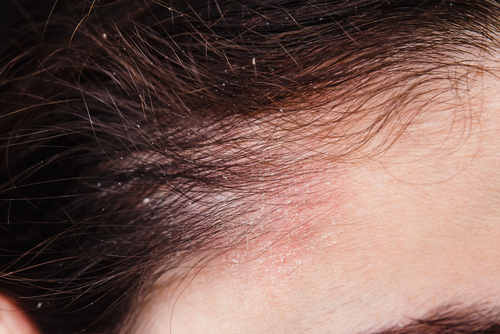
Dandruff
Change of seasons can make the scalp dry out, or just make you more prone to dry scalp. Dry scalp isn’t hard to treat, but it can be annoying.
If dry scalp is the cause of your dandruff, first try to avoid washing your hair with products that dry out your scalp. Then if you’re still having problems, there are several natural remedies that you might find helpful, including:
- Coconut oil
- Tea tree oil
- Aloe vera
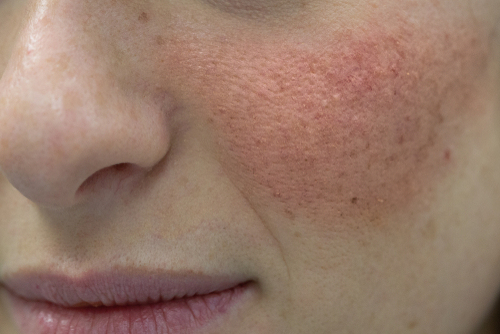
Seborrheic Dermatitis
On the other side of skin quality, when the hair or scalp becomes extremely oily, it can cause dandruff-like flakes to form. Seborrheic dermatitis might also look a lot like psoriasis, but it’s actually related to eczema.
A seborrheic dermatitis rash occurs in areas of the body with a high concentration of sebaceous glands, such as on the scalp.
Because seborrheic dermatitis is a chronic condition, treatments usually involve just trying to remove the scales. Typically, coal tar shampoo, petroleum jelly, or a gentle zinc cleanser will do the trick. However, for more severe cases or flare-ups, a Tennessee dermatologist may prescribe topical corticosteroids or a calcineurin inhibitor to alleviate symptoms.
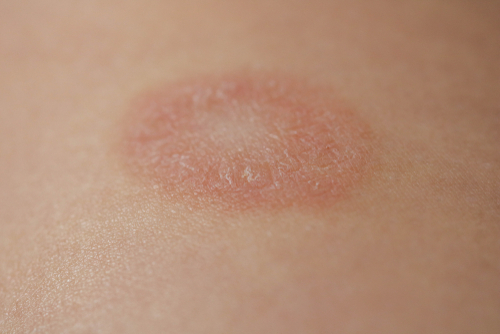
Pityriasis Rosea
Pronounced pit-ih-RYE-a-sis, this type of rash can occur at any age but appears mostly in young adults. Pityriasis Rosea generally follows a cold. The rash first begins as a strawberry-colored ovular patch on your trunk. This is the herald patch that is usually followed by more pink and red spots that branch out from the middle of your body.
Thankfully, this condition is harmless and usually resolves within about 10 weeks. However, itching usually occurs with the rash, and often patients seek treatment for the itch and appearance.
Pityriasis rosea can be easily diagnosed through an online dermatology appointment. You may be prescribed a topical steroid cream or an antihistamine to help reduce symptoms.
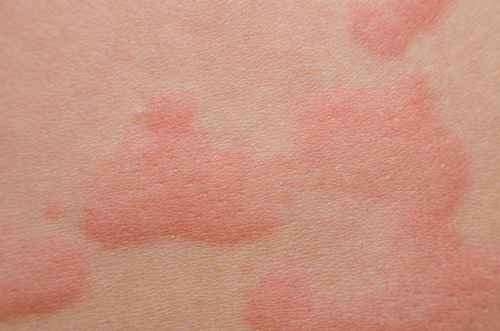
Hives
Medically known as urticaria, hives are an allergic rash that has one or more of the following symptoms:
- Itchiness
- Red welts
- Raised welts
- Itchy skin-colored welts
Because hives are caused by an allergic reaction, there are many possible causes. Food, insect stings, sun exposure, medication, or other diseases might be at the root of the flare-up.
During September and October, ragweed levels are particularly high. And because most people are allergic to ragweed, it’s a common cause of hive flare-ups.
Usually, symptoms will fade on their own, but if the itching is severe and is hard to control with over-the-counter medications, a dermatologist can prescribe stronger topical medications to relieve your symptoms.
Beware of Sunburns
While not really a flare-up in the sense of rashes, sunburns can still happen during the fall. Cooler temperatures and overcast skies are no excuse to go without sun protection or sunscreen.
No matter how cloudy it is during the day, the sun’s UV rays are still hitting your skin and will damage it if you leave it unprotected.
Dry Skin and Dry Lips
Even if you don’t have eczema or psoriasis, the cooler and drier air in the fall will probably still affect your skin at some point. Also, it can get windy in the fall, which further aggravates dry skin problems.
The simple solution is to moisturize and protect your skin daily. Be sure to use a moisturizing cream during the fall and winter months. Save the lighter skin lotions for summer.
If your skin is still drying out, it might be time to take slightly cooler showers. You don’t have to take a freezing cold shower, but you should avoid taking extremely hot showers. As the hot water evaporates off of your skin, it will take a lot of your skin’s natural moisture with it.
Treatment for Fall Skin Flare-Ups with TN Telederm
Set up an appointment with a Tennessee board-certified dermatology professional through our patient portal. Get help identifying fall skin rashes and conditions so you can get the best treatment to relieve your symptoms. Get treatment for your itchy skin flare-ups from the comfort of your own home!


